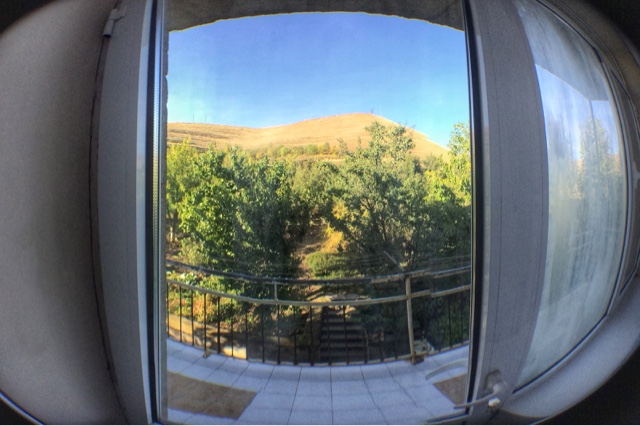There was one minor complication, though. The Ministry of Education (called the National Institute for Education here) decided last minute to change the week of fall vacation. Apparently this happens all the time in Armenia, with school staff learning that morning by listening to the radio whether or not there will be school on a given day. It was originally supposed to be last week (during what the PC staff had scheduled as Clubs Week), but just before we left of our Sisian Visit, the vacation was delayed until this week. Why we didn't just switch clubs week and practicum week, I'll never know, but for whatever reason, we didn't. Thus, last week we were holding clubs during the middle of the school day, and this week we've been having class during the middle of vacation.
There have been some upsides to this: for examples, I've only had 2 or 3 students show up to each class. On the other hand, there have been some down sides: I haven't had the same students attend 2 classes in a row all week. This means that the lessons I had planned- which built upon each other- weren't every useful at all and had to be reworked so that each lesson is a stand along class.
On top of that, for reasons that are entirely beyond me, we have a final lesson with the students on Monday of next week, which is the first day that all the students come back from vacation, and Sam and I had the bad luck of having our final observation and evaluation on this day. It means that I'll be observed while teaching a group of students, some of whom have been to some lessons I've given over the past week, and some of whom haven't seen me in a month, and none of whom have a solid baseline of what to expect from me as a teacher. Great.
Despite the screwed up nature of the schedule, and the ongoing problems I have with the general organization of the project, I am glad to have had this experience.
For one thing, just having to do the lesson planning and watch it all fall to pieces week after week has given me a much, much greater appreciation of who much work being a teacher is. I grew up with two teachers for parents- I wonder how I never realized how difficult planning and delivering a good lesson is? A part of my mind knows they must have put effort into making sure their lessons were well organized and structured, but it's hard to believe it. They always made it look so effortless. I never saw them struggle to decide what to teach during a class or how to deliver information to the students in a way they'd understand. My parents always seemed to just get up in front of a class and they knew what to do. I don't know why I always just took this part of their job for granted. I won't do it again, that's for certain.
Another thing that I really appreciated about the practicum week was the chance to et to know the students. This surprised me, because I honestly don't like kids. Really, I don't. I actively dislike spending time with them. They make me uncomfortable. But I did enjoy getting to know these students in a sort of sociopathic kind of way.
The best way I can explain it is to use an example from television. The TV show House MD feature a brilliant diagnostic physician who, unlike the doctors around him, doesn't really care about helping people. In the place of altruism, what really motivates this doctor is the process of solving the mystery of an illness. For him, helping the sick person is more of a side effect than and end goal. Similarly, (although I don't claim the skill and talent of the doctor in the TV show) while I never enjoyed the students for their company, the challenge of finding a way to engage each one of them- especially the weather ones who tended to misbehave- had held some appeal for me. Each student who struggles is like a little puzzle, and it's up to me to figure out what's not working and how to fix it. This is a far cry from actually caring about students as persons in their own right, but I gotta get behind this whole teaching gig any way I can right now, so I'll take the House MD-sociopathic route for the moment, since it appears to be the only road open to me right now.
And to be fair, this approach did lead to some minor victories in the classroom. One kid, who in the US would be diagnosed with ADD/ADHD in a heartbeat, really excelled with I gave him an activity that involved clapping his hands as he spoke, one clap per syllable. It gave him something more active to do during class, and it improved his pronunciation: instead of "plah-uhm", he began to say "plum" with one clap. Instead of "pee-ahr", he began to say "pear", The best part was when he started to employ the clapping technique on his own, without my prompting. I would introduce a new word and he would ask how 'how many claps', or just clap as he repeated the word after me.
I don't know if I taught him any English in our lessons, but I feel like this, at least, is a tool he can use in the future. Which, in it's own way, is as important.






































